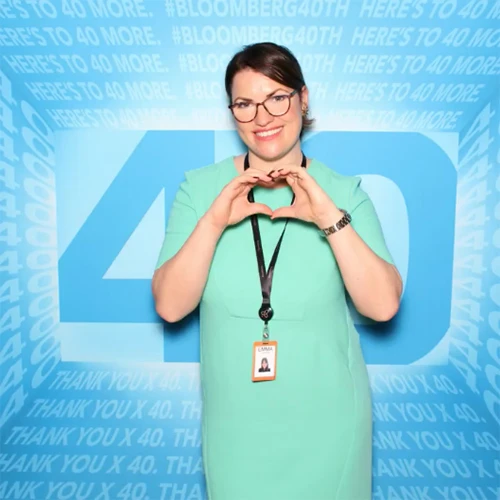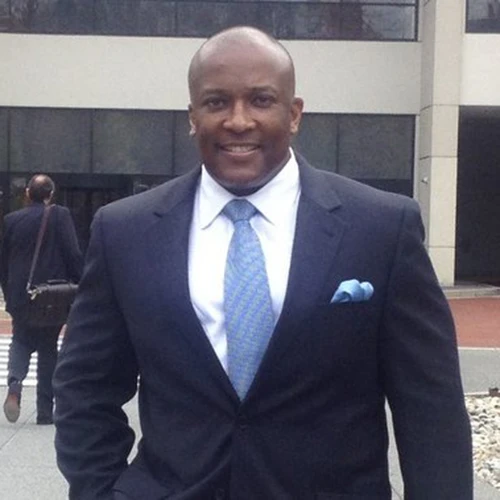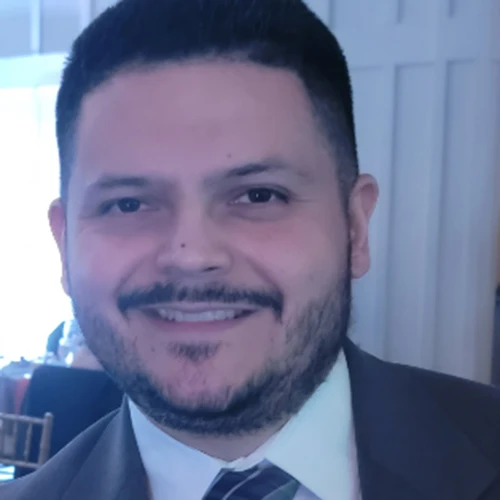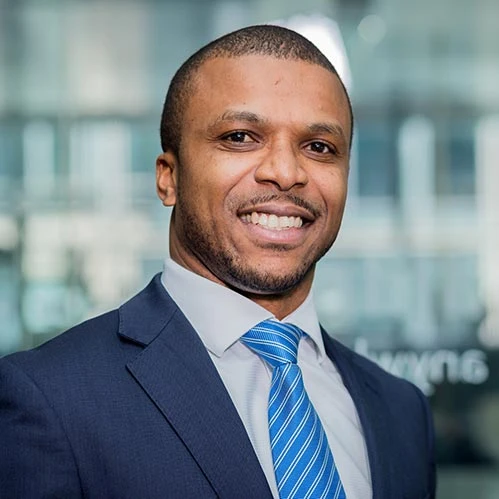Recognizing veterans and valuing military service in the workplace
November 10, 2021
“Every military unit needs HR so I was exposed to lots of different job roles and disciplines and I was able to figure out what I liked and disliked. I realised that I loved creating meaningful learning experiences for others.”
“The experience forced me to continually step out of my comfort zone, be constantly receptive to learning new things, develop mental strength and manage my emotions, be resourceful, and become a problem solver.”
“Having that foundation coupled with the training and leadership development that I received while in the military has allowed me to achieve growth and success both in the military as well as in the civilian world.”
“As it relates to growth and success, my military experience has gifted me the ability to perform at a high level whilst dealing with significant amount of change.”
Service doesn’t stop at the military; it extends into the civilian world. At Bloomberg, we respect and admire our employees’ service and appreciate that our own values – like innovation, collaboration, and doing the right thing – are equally recognized within the military and veteran community.
Here, members of our military & veterans community share their own stories, how they have transferred their skills and experiences to the workplace, and what they think companies can do to further engage with veterans.
Emma Calder
Talent and Leadership Development Partner Global Data, Support, and Engineering
London
Where/when did you serve in the military, and which division? What motivated your decision?
After pursuing a career in architecture, I decided to change course and join the Army in 2006. I believed it was the most realistic way for me to spread my wings, contribute to a greater good, and develop myself at the same time. I joined the HR branch of the Army and moved to Germany, where I served with the Engineers. After a six-month tour of Iraq, I moved back to the UK to serve with the Artillery. At the time, HR wasn’t a popular choice, so I thought there might be more opportunity, and if all else failed, I’d gain lots of transferable skills.
In transitioning to civilian life at Bloomberg, did you find it challenging? If so, how? Was there anything surprising or unexpected about the experience?
In my first role out of the Army (pre-Bloomberg), I was surprised to see that creating a sense of ‘community’ amongst colleagues wasn’t really a thing at all. In the forces, the lines between life and work are intertwined – essentially, you live with your colleagues. Creating close communities and spending time together socially builds trust and connects people at a human level.
Now, I’m almost one year into my time with Bloomberg and the culture here is the closest to what I experienced in the Armed Forces. The people here are the differentiator and our philanthropic endeavors drive that sense of community and shared purpose.
Which values and skills from the military have been useful as a Bloomberg employee?
From my time served, I learned to lean into discomfort and push through. The Army shifts you well outside of your comfort zone physically, mentally, and emotionally, but if you persevere, you achieve things that, at first, you don’t believe are possible. It’s these ‘heat experiences’ that help you grow and develop quickly, a concept that I commit to personally and bring into my work in the talent and leadership space.
What do you think companies can do better to encourage and include veteran employees?
I don’t think the approach to veterans needs to be different to any other employee. Connect with people as human beings and be curious about their lives and previous experiences. You’ll quickly learn what they find important and how to best include them.


Make it happen here.
Fenton Reese
Security Operations
New York
Where/when did you serve in the military, and which division? What motivated your decision?
I enlisted at 17 years old and served in the U.S. Marines from August 1980 to March 2011. I was looking for independence and was motivated by the desire to take on the challenge of becoming a Marine. During my time in the Marines, I was assigned to numerous operational units and special assignments – too many to mention here.
What lessons did you take from your time in the military? How do you feel the experience contributed to your growth and success?
The experience forced me to continually step out of my comfort zone, be constantly receptive to learning new things, develop mental strength, manage my emotions, be resourceful, and become a problem solver. I learned to become comfortable with being uncomfortable. In addition, I’ve developed a keen understanding of human behavior. All of these tangible and intangible lessons contributed to instilling a growth mindset.
In transitioning to civilian life at Bloomberg, did you find it challenging? If so, how? Was there anything surprising or unexpected about the experience?
The transition to life at Bloomberg was surprisingly more like a military environment than one would think. The company has its own unique culture, operates with the efficiency and effectiveness of a military unit, has exacting standards, is fiercely competitive in the marketplace, is constantly searching for opportunities to improve, demands excellence, and lives by its core values.
Which values and skills from the military have been useful as a Bloomberg employee?
I’d say the leadership skills I’ve acquired and honed over a 30-year military career have been the most useful. Those skills have enabled me to participate in and significantly contribute to a wide array of events and special projects as a security operations territory manager and as co-lead for Bloomberg’s Military & Veterans Community (BMVC).
What do you think companies can do better to encourage and include veteran employees?
Make a genuine commitment to recruit and retain veterans, gain a deep understanding and awareness of military culture, and create opportunities to allow veterans to showcase their unique talents and capabilities. Hiring veterans and finding the right fit for them will result in the company gaining a competitive advantage in the marketplace, as they’re acquiring extremely loyal and dedicated employees who are mission oriented. The benefit to the company, its employees, and veterans will be immeasurable!


Michael Cabrera
Bloomberg Employee Operations Team Leader
New York
Where/when did you serve in the military, and which division? What motivated your decision?
I served in the U.S. Navy as an Information Systems Technician (IT) for five years and was stationed primarily in Norfolk, Virginia. I also spent time in the Navy Reserve and have reenlisted to continue serving this year. My motivation was to serve my country, as well as learn to work with computers.
In transitioning to civilian life at Bloomberg, did you find it challenging? If so, how? Was there anything surprising or unexpected about the experience?
Transitioning to civilian life prior to joining Bloomberg was challenging at first because, at the time, veterans and our skill sets were much less understood than they are today. Whether it was applying for jobs or signing up for classes, it was as if your service was dismissed. To me, this was surprising, unexpected, and difficult to understand because, in the military, you take on a lot of responsibility very early on and often at a young age.
Which values and skills from the military have been useful as a Bloomberg employee?
The Navy’s core values are honor, courage, and commitment. They provide the framework for how we conduct ourselves in everything that we do, and are very much aligned with Bloomberg’s core values of innovate, collaborate, do the right thing, and know your customer. By the time I got to Bloomberg, I had been out of the military for a while, but it’s where I felt that it all came together. From my technical know-how to customer service focus and leadership abilities, I was able to leverage it all Bloomberg – and still do more than a decade after joining the firm.
What do you think companies can do better to encourage and include veteran employees?
Work with and engage veterans directly. There’s no better way to understand our challenges, skills, training, potential, and foment an encouraging and inclusive environment for veterans.


Oliver Daley
Sales Manager
New York
Where/when did you serve in the military, and which division? What motivated your decision?
I served in the British Army from 2005 to 2009. During this period, I served as a soldier within the Royal Army Medical Corps and the Royal Logistics Corps. I joined the military after completing university in Jamaica. Going in, I knew that I would get an opportunity to develop a unique set of skills that I could leverage in most real-world scenarios going forward.
Which values and skills from the military have been useful as a Bloomberg employee?
The goal is always to gain the respect of my colleagues by building credibility and trust. My military experience provided me with values and skills that help me achieve this. During my time in the British Army, I honed and developed skills that allow me to serve my organization and community, make good decisions, put an emphasis on developing camaraderie and trust amongst my colleagues, have good professional ethics, develop and implement strategies, and so forth. The experience gave me the confidence that I am able to achieve peak performance consistently, which has been transferable to Bloomberg.
What do you think companies can do better to encourage and include veteran employees?
Recognizing that military veterans can positively contribute to our success is fundamental. Organizations investing in initiatives that support our veterans is key! There is evidence that early engagement with military veterans through insight days, mentorship, and coaching continues to be successful. The Bloomberg Military & Veterans Community does a stellar job at this. In addition, being more intentional about our recruitment strategy for military veterans will always help.

